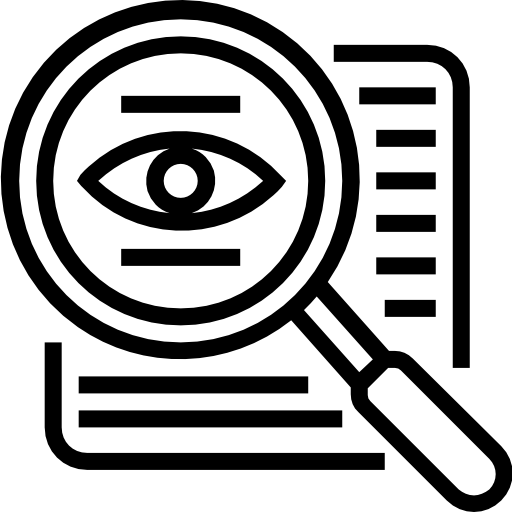Water access and infrastructure
Sanitation and hygiene (WASH) education
Toilets for dignity
Community empowerment
Climate resilience
- Uganda, Central Kampala, Nakawa Division, Mbuya II,
- info@parpacaafrica.org
- +256 772873735,
- +49 15214740368
A hybrid NGO think tank and innovation ecosystems hub advancing community-led research, inclusive innovation ecosystems, and evidence-based policy solutions to turn local knowledge into sustainable development impact across Africa.
Shaping Policies, Driving Sustainable Solutions: Where Research, Innovation, and Action Meet to Transform Africa’s Future.
The Participatory Action Research and Policy Advocacy Center Africa (PARPACA) is an independent, non-profit NGO and think tank, registered in Uganda, with operations across Africa through its regional representatives. PARPACA conducts participatory research, policy analysis, and advocacy to support decision-making, improve governance, and empower communities to influence policies that affect their lives.
Innovation Ecosystems Hub
At the heart of PARPACA is the Innovation Ecosystems Hub, a multidisciplinary platform driving practical solutions for sustainable development across Africa. By connecting research, policy, and action, the Hub ensures that knowledge and ideas translate into real impact on the ground.
Using a systems-based approach, PARPACA brings together African and European universities—including partners from Germany—researchers, NGOs, policymakers, private-sector innovators, and local communities to co-create solutions for complex challenges. These include climate resilience, sustainable food systems, natural resource management, renewable energy, inclusive economic growth, and urban sustainability, all integrated into locally-driven solutions for Africa’s development.
The Hub combines high-quality research, smart policy analysis, and hands-on implementation. It turns ideas into practical solutions, strengthens local skills and capacities, and generates knowledge that shapes policies and development strategies.
Partnerships and Impact
For funders and partners, PARPACA is a trusted, results-focused platform with strong experience in managing partnerships and delivering projects on the ground. By fostering innovation, encouraging collaboration, and aligning its work with the UN Sustainable Development Goals (SDGs), PARPACA creates lasting impact, value, and sustainable outcomes that advance Africa’s development.
We are aligned with the United Nations Sustainable Development Goals (SDGs) hinged on the transformative Principal Leave no one behind (LNOB) with an emphasis on human rights reflected in the SDGs below
.

_____________
Eradicating poverty leads to more stable societies, reduces conflict, and enables people to contribute fully to the economy and community

_____________
Zero Hunger is the second goal of the United Nations Sustainable Development Goals (SDG 2), aiming to end hunger, achieve food security, improve nutrition, and promote sustainable agriculture by 2030.

_____________
Gender equality is not just a women's issue—it’s a human rights issue. It means giving everyone, regardless of gender, the same opportunities to thrive, lead, and live with dignity

_____________
Water is life—but for 2.2 billion people around the world, access to safe drinking water remains out of reach. Over 4.2 billion people lack safely managed sanitation services.

_____________
Sustainable Development Goal 7 (SDG 7) aims to ensure access to affordable, reliable, sustainable, and modern energy for all.

_____________
Sustainable Development Goal 10 (SDG 10) calls for the reduction of inequality within and among countries, ensuring that no one is left behind.
_____________
The 13th United Nations Sustainable Development Goal (SDG 13), calls for urgent steps to combat climate change and its impacts. It means reducing greenhouse gas emissions, building resilience, and empowering communities to protect the environment and prepare for climate-related risks.
_____________
By strengthening community structures, supporting conflict resolution, and promoting legal awareness, we help create resilient societies where justice prevails and institutions serve the people.
_____________
Sustainable Development Goal 14: Life Below Water aims to conserve and sustainably use the oceans, seas, and marine resources. Oceans cover over 70% of the Earth's surface and are vital to life as we know it.
_____________
we believe that healthy ecosystems are the foundation of thriving communities. Through reforestation projects, sustainable land use initiatives, and community-led conservation programs, we work to preserve biodiversity, combat desertification, and restore degraded lands.

Empowerment is not about giving people power—it’s about unlocking the power they already have.

By empowering voices and creating space for dialogue,we play a vital role in making governance more inclusive, transparent, and accountable.

By mobilizing, educating, and empowering communities to speak truth to power—ensuring their voices lead to laws and systems that serve everyone fairly.

By creating a society where everyone—regardless of gender, race, income, religion, ability, or background—has equal access to opportunities, rights, and resources.

Impact that ends when a project ends is not enough. We believe in impact that grows, multiplies, and continues—powered by communities, for generations to come.

We believe that open sharing of information strengthens trust, drives accountability, and ensures that our research and advocacy efforts truly serve the people.
We collaborate with vulnerable and marginalised populations to co-create knowledge, amplify community voices, and influence policies that dismantle systemic injustices. Through grassroots inclusion, participatory research, and strategic advocacy, we work to transform inequitable structures and strengthen communities’ capacity to claim their rights and shape their futures
Universities and Research Institutions in Africa can join PARPACA to have access to Grant Calls Participatory Community Based Research Projects in individual countries.
Payment to Participatory Action Research and Policy Advocacy Center Africa. Use different payment methods
Be part of the change. Help us empower marginalized communities and advance social justice across Africa through your support and involvement. Get Involved
Publications
Career
Library
Projects
© 2025 all rights reserved by parpacaafrica.org